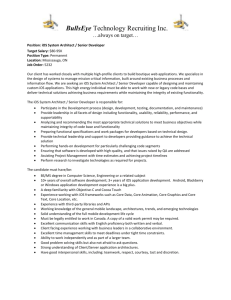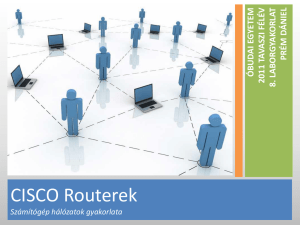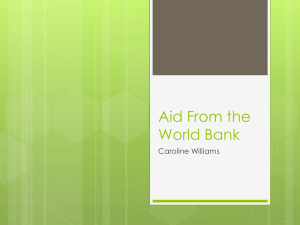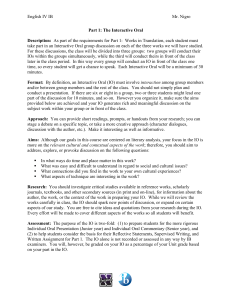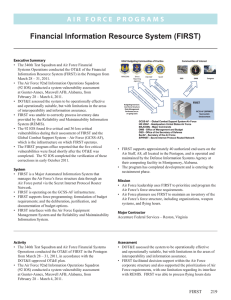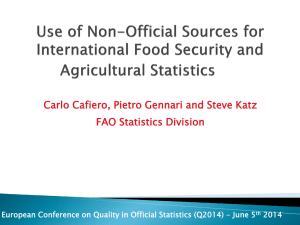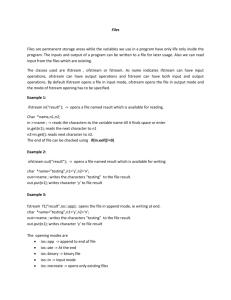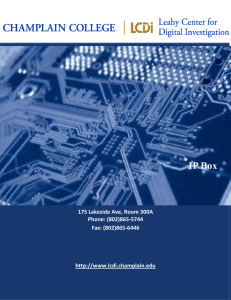international organi..
advertisement
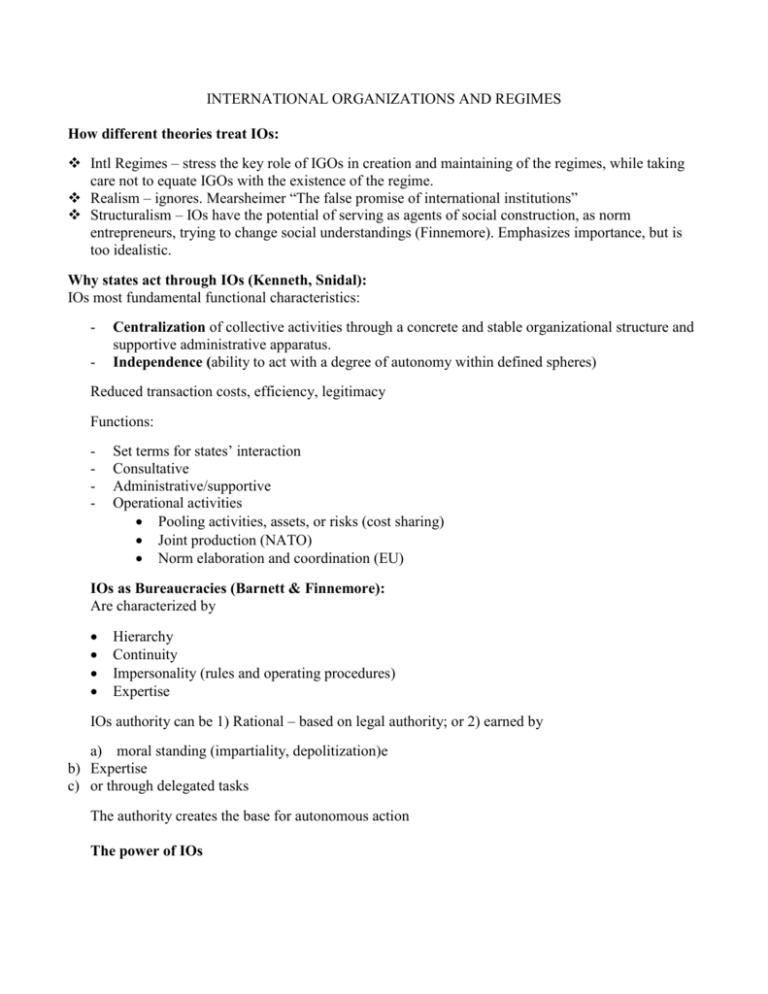
INTERNATIONAL ORGANIZATIONS AND REGIMES How different theories treat IOs: Intl Regimes – stress the key role of IGOs in creation and maintaining of the regimes, while taking care not to equate IGOs with the existence of the regime. Realism – ignores. Mearsheimer “The false promise of international institutions” Structuralism – IOs have the potential of serving as agents of social construction, as norm entrepreneurs, trying to change social understandings (Finnemore). Emphasizes importance, but is too idealistic. Why states act through IOs (Kenneth, Snidal): IOs most fundamental functional characteristics: - Centralization of collective activities through a concrete and stable organizational structure and supportive administrative apparatus. Independence (ability to act with a degree of autonomy within defined spheres) Reduced transaction costs, efficiency, legitimacy Functions: - Set terms for states’ interaction Consultative Administrative/supportive Operational activities Pooling activities, assets, or risks (cost sharing) Joint production (NATO) Norm elaboration and coordination (EU) IOs as Bureaucracies (Barnett & Finnemore): Are characterized by Hierarchy Continuity Impersonality (rules and operating procedures) Expertise IOs authority can be 1) Rational – based on legal authority; or 2) earned by a) moral standing (impartiality, depolitization)e b) Expertise c) or through delegated tasks The authority creates the base for autonomous action The power of IOs - - Classification of the world (bureaucracies classify and organize information and knowledge). Problems have to be formulated, so IOs define (construct) issues as matters for political concern (e.g. human rights) The fixing of meaning (Define and redefine) E.g. the understanding of security – shift from military security to a range of economic, environmental, health, etc, issues. Diffusion of norms – spread, inculcate, and enforce global values. Delegation under Anarchy: States, Organizations, and Principal-Agent (PA) Theory. Benefits of delegation to IOs: - Specialization Capture policy externalities Facilitate collective decision-making Resolve disputes Enhance credibility Lock-in (creating policy-bias, such as permanent membership of WWII winners at UN SC) Impediments to delegation: Diverse preferences of states make their agreement to a common policy & delegation to IOs less likely. As the distribution of power and institutional rules diverge, the less likely states will be to delegate to that IO. Agency problems: - Agent becomes self-seeking and opportunistic. Interests are not perfectly aligned. Hidden information & action (due to specialization). Theories of Organizations (Karns, Mingst) - Organizational culture. Over time organizations tend to develop cultures of their own, independent of and different from the cultures of their individual members, that can influence states and their own work. PA theory. E.g.World Bank – liberal culture of U.S. graduate schools. - Organizational adaptation and learning. Adaptation by adding new activities to their agendas without examining and changing underlying bases and values (PK in the UN) With learning, earlier beliefs start being questioned and new processes get developed. Thus, learning involves redefinition and reconceptualization of problems. (World Bank – from infrastructure projects to basic human needs, environment, poverty alleviation, and good governance) . Interorganizational relations (studying organizational interdependence, cooperative and conflictual relations between different organizations and between organizations and states). Networks. IOs not only interact with one another, they also operate within broader networks. Transnational advocacy networks – increasingly important to global governance.
